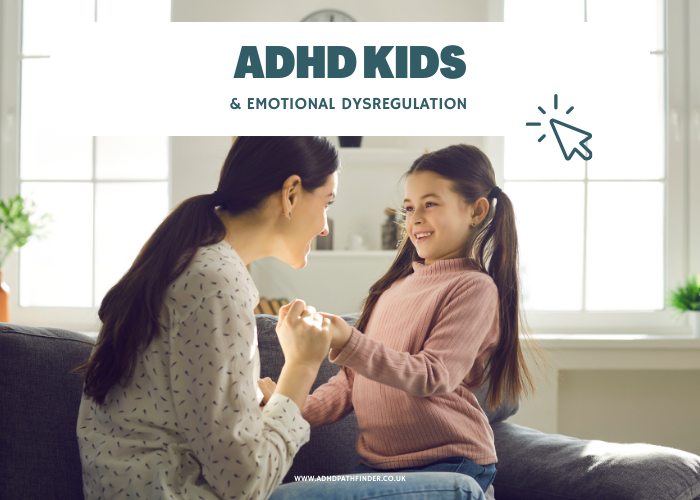Emotional control is a critical skill that helps individuals manage their emotions effectively to achieve their goals, complete tasks, and control and direct their behaviour. It means being able to tap into positive emotions to overcome obstacles and persist during challenging times. For children with Attention Deficit Hyperactivity Disorder (ADHD), emotional control can be a particularly challenging aspect of their development. In this article, we will explore how emotional control develops in infancy, toddlerhood, childhood, and adolescence, and provide practical ways to help ADHD kids improve their emotional control in everyday situations.
Development of Emotional Control
1. Infancy: Emotional control begins to develop in infancy as babies learn to regulate their basic emotions like joy, fear, and anger. They do this through interactions with their caregivers, who provide comfort and support when needed. Caregivers play a vital role in helping infants establish a sense of emotional security, which forms the foundation for future emotional control.
2. Toddlerhood: As children enter toddlerhood, they start experiencing a wider range of emotions. They learn about frustration, disappointment, and self-soothing. Tantrums are common at this stage as toddlers struggle to express themselves verbally. Parents and caregivers can support emotional control by modelling appropriate emotional responses and providing guidance on how to manage their feelings.
3. Childhood: Emotional control continues to develop during childhood. Children become more aware of social norms and expectations, which influence their emotional expression. They also start to learn the value of delaying gratification and impulse control. Creating a nurturing and supportive environment where children can practice emotional regulation is essential.
4. Adolescence: During adolescence, teenagers face significant emotional challenges as they navigate identity formation, peer pressure, and academic stress. ADHD symptoms may become more pronounced during this period. Adolescents with ADHD may find it harder to manage their emotions, leading to impulsivity and emotional outbursts. It's crucial to provide them with coping strategies and tools to handle these challenges.
Ways to Improve Emotional Control in ADHD Kids
1. Regulate the Environment: Create a structured and predictable environment at home and school. ADHD children often benefit from clear routines and minimal distractions. Reduce sensory overload by eliminating unnecessary noise or clutter.
2. Prepare Your Child: Talk to your child about what to expect in different situations. Discuss strategies they can use when they start to feel overwhelmed. This proactive approach helps them feel more in control of their emotions.
3. Give Them Coping Strategies: Teach your child various coping strategies such as deep breathing exercises, mindfulness, or counting to ten when upset. Encourage them to identify their emotions and express them appropriately.
4. Provide a Script: Offer your child a script to follow in problematic situations. For example, if they often have trouble sharing toys, teach them a phrase like, "Can I have a turn when you're done?" Having a rehearsed response can reduce anxiety and impulsive reactions.
5. Read Relevant Stories: Use books or stories that relate to the behaviour you want your child to exhibit. Reading about characters who overcome similar challenges can help children better understand and manage their emotions.
6. Teach Specific Skills: ADHD children may need extra support in developing specific skills, such as time management, organisation, and impulse control. Consider seeking professional guidance, like therapy or counselling, to address these needs.
Improving emotional control in ADHD children is an ongoing process that requires patience and consistent effort. By understanding the developmental stages of emotional control and implementing practical strategies, parents and caregivers can empower their children to manage their emotions effectively, ultimately leading to improved well-being and success in various aspects of life.

_edited.png)
Comments